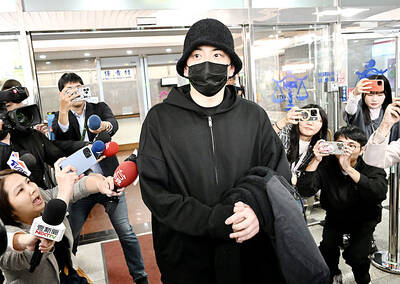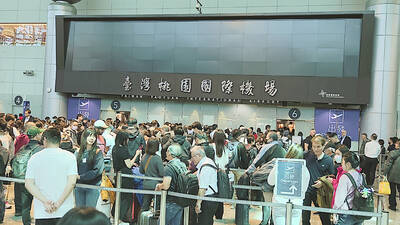The Japanese government has agreed to compensate Taiwanese nationals who survived the 1945 Hiroshima and Nagasaki atomic bombings.
Representatives of 18 Taiwanese survivors had filed a class action suit against Japan, seeking compensation for the trauma and damage survivors suffered during the bombings by the US.
The bombs killed 180,000 people and left 580,000 physically injured or mentally scarred.
The Japanese government reportedly reached an out-of-court settlement on Monday with 10 of the 18 Taiwanese survivors, agreeing to pay them compensation of ¥1.1 million (US$13,120) each.
Survivors from five other countries, including South Korea, Brazil and Australia, had already received similar compensation.
One of the 10 Taiwanese survivors is Wang Wen-chi (王文其), a retired medical doctor from Chiayi who is now 95 years old and in good health.
Wang was working as an intern at a university hospital in Japan on Aug. 9, 1945, when the US dropped the atomic bomb on Nagasaki, before three days later bombing Hiroshima.
Wang’s response to news of the compensation decision was lukewarm.
“Wars are terrible and people should try to avoid them,” he said to a group of Japanese who visited him yesterday.
He was given a health handbook issued by the Japanese government to atomic bomb survivors a couple of years ago, which entitles him to one free medical checkup a year in Japan and a monthly food stipend of about NT$9,000.
Wang’s son, Wang Po-tung (王柏東), who is a dentist, said his family had earlier applied for the benefit, but the request was rejected because his father had produced no medical documents to show that he was a bomb survivor.

The National Immigration Agency (NIA) said yesterday that it will revoke the dependent-based residence permit of a Chinese social media influencer who reportedly “openly advocated for [China’s] unification through military force” with Taiwan. The Chinese national, identified by her surname Liu (劉), will have her residence permit revoked in accordance with Article 14 of the “Measures for the permission of family- based residence, long-term residence and settlement of people from the Mainland Area in the Taiwan Area,” the NIA said in a news release. The agency explained it received reports that Liu made “unifying Taiwan through military force” statements on her online

A magnitude 5.7 earthquake struck off Taitung County at 1:09pm today, the Central Weather Administration (CWA) said. The hypocenter was 53km northeast of Taitung County Hall at a depth of 12.5km, CWA data showed. The intensity of the quake, which gauges the actual effect of a seismic event, measured 4 in Taitung County and Hualien County on Taiwan's seven-tier intensity scale, the data showed. The quake had an intensity of 3 in Nantou County, Chiayi County, Yunlin County, Kaohsiung and Tainan, the data showed. There were no immediate reports of damage following the quake.

Actor Darren Wang (王大陸) is to begin his one-year alternative military service tomorrow amid ongoing legal issues, the Ministry of the Interior said yesterday. Wang, who last month was released on bail of NT$150,000 (US$4,561) as he faces charges of allegedly attempting to evade military service and forging documents, has been ordered to report to Taipei Railway Station at 9am tomorrow, the Alternative Military Service Training and Management Center said. The 33-year-old would join about 1,300 other conscripts in the 263rd cohort of general alternative service for training at the Chenggong Ling camp in Taichung, a center official told reporters. Wang would first

MINOR DISRUPTION: The outage affected check-in and security screening, while passport control was done manually and runway operations continued unaffected The main departure hall and other parts of Terminal 2 at Taiwan Taoyuan International Airport lost power on Tuesday, causing confusion among passengers before electricity was fully restored more than an hour later. The outage, the cause of which is still being investigated, began at about midday and affected parts of Terminal 2, including the check-in gates, the security screening area and some duty-free shops. Parts of the terminal immediately activated backup power sources, while others remained dark until power was restored in some of the affected areas starting at 12:23pm. Power was fully restored at 1:13pm. Taoyuan International Airport Corp said in a